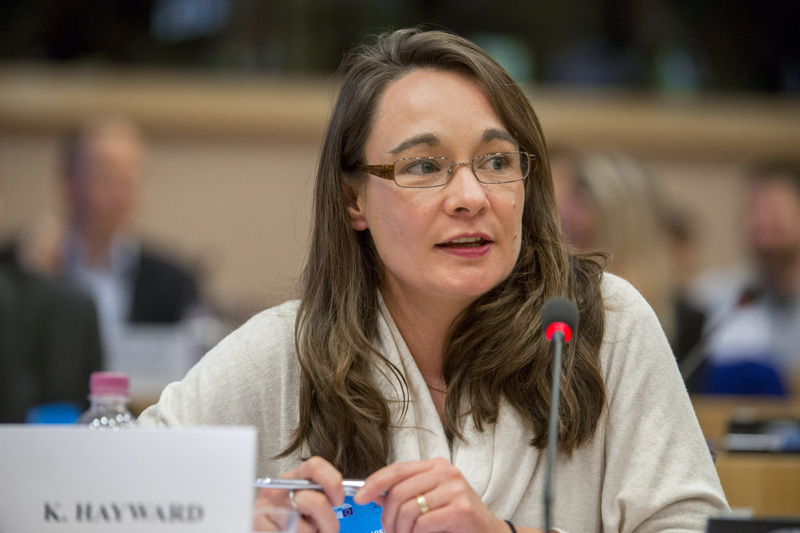7 out of 10 think the 1998 Agreement remains good for Northern Ireland
The Northern Ireland Life and Times (NILT) Survey shows 69% agree the Belfast/Good Friday Agreement remains the best basis for governing NI. However, 55% believe it needs at least some reform. 1 in 6 (16%) say it should be removed altogether.

The results were analysed in a report, ‘Political attitudes in Northern Ireland 25 years after the Agreement’, released today (Thursday 13 April) as part of the 2022 questions on political attitudes in the Northern Ireland Life and Times (NILT) Survey by ARK – a joint initiative between Queen’s University Belfast and Ulster University.
The report was co-authored by Professor Katy Hayward and Ben Rosher from the School of Social Sciences, Education and Social Work at Queen’s.
The results showed that an almost identical proportion (45%) of the three main communal blocs feel that the Agreement remains the best basis for governing Northern Ireland. However, 27 per cent of unionists believe the Agreement is no longer/has never been a good basis for governing Northern Ireland (compared to 13% of those saying they are ‘neither unionist nor nationalist’ and 8% of nationalists).
Younger people are the least confident about the 1998 Agreement, with 30% of under-35s answering ‘don’t know’ when asked their opinion on it.
As well as frequently asked questions on political identity, constitutional futures and Brexit, NILT in 2022 also tested for levels of trust that exist in political actors involved in governing Northern Ireland.
Key findings include:
- Although most respondents think the long-term policy for Northern Ireland should be to be in the UK under a devolved settlement (35%), support for this has fallen dramatically since 2016 (when it was 54%).
- There has been a steady and equally dramatic rise in support for Irish unification since the Brexit referendum (now 31%, compared to 14% in 2015).
- If there were a border poll tomorrow, 47 per cent of respondents say they would vote for Northern Ireland to remain in the UK (down 6 percentage points from 2020), with 35 per cent saying they would vote for a united Ireland.
- Only 38% say Brexit has made a united Ireland more desirable, with a plurality (42%) still saying it has made no difference to their views.
- The relative size of the groups identifying as nationalist (26%), unionist (31%) or ‘neither’ (38%) has become closer, but there has been a particular strengthening of nationalist identities since 2016.
- Levels of distrust in the UK Government are highest among nationalists (86%); distrust in the Irish Government and the EU is highest among unionists (both c.55%); and distrust in the NI Executive is highest among those who are ‘neither unionist nor nationalist’ (60%).
The survey also found that the NI Civil Service is most trusted (41%), followed by the EU (37%). The lowest levels of trust are in the NI Executive (17%) and the UK Government (21%).
There are high levels of distrust in the UK government (60%) and NI Executive (52%). Respondents are more ambivalent about the Irish Government, with the predominant response being ‘neither trust nor distrust’/‘don’t know’ (37%).
The results showed that trends evident in recent years around the perceived impact of Brexit have persisted, with a majority (63%) still thinking that it makes a united Ireland more likely. Indeed, in a reversal of the situation that was consistently the case until 2021, more people in Northern Ireland now think it likely a united Ireland will exist in 20 years (45%) than expect there still to be a United Kingdom by then (38%).
Speaking about the results, Professor Hayward said: “On the anniversary of the Agreement, it is a sign of its success that the large majority think it remains the best basis for governing Northern Ireland. However, the NILT Survey also shows that there are consequences to a lack of fully-functioning institutions. Declining confidence in devolution, growing anticipation of Irish unification, and high levels of distrust in political actors reflect the some of the post-Brexit flux experienced in Northern Ireland.”
Ben Rosher added: “Although the so-called Agreement Generation is the cohort with the lowest levels of confidence in the Agreement, it is also the one with the highest level of trust in political actors. This could either be because 18-24 year olds simply accept dysfunctional politics as the norm or, more optimistically, because they have no direct experience of the Troubles that informed the current political set up.”
The full report and findings of the ‘Political attitudes in Northern Ireland 25 years after the Agreement’ report is available here: https://www.ark.ac.uk/ARK/nilt
Featured Expert

Media
Media enquiries to Zara McBrearty at Queen’s Communications Office on email: z.mcbrearty@qub.ac.uk or Mob: 07795676858.